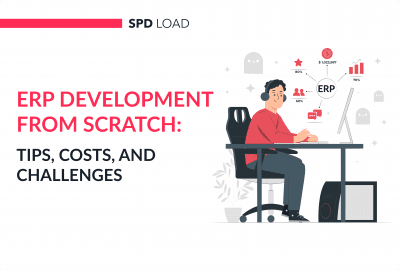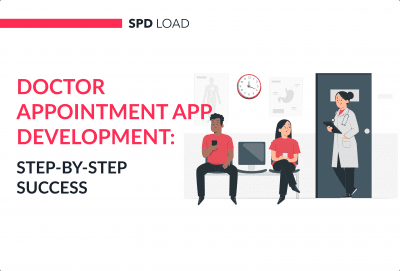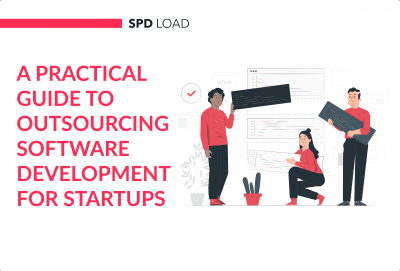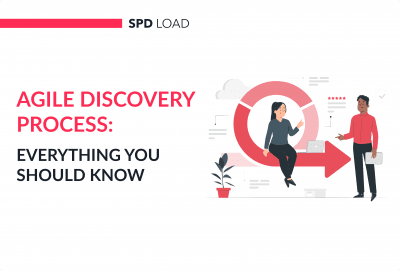7 Steps to Choosing the Best SaaS Hosting for Your SaaS
- Updated: Aug 27, 2024
- 10 min
The SaaS delivery model has indisputably changed how software vendors market and sell their software. With SaaS hosting, companies can create, distribute, and manage software on the cloud easily and in a more cost-effective way.
However, the success of any SaaS delivery model is dependent on several factors including the flexibility and scalability it offers. It must also meet customers’ availability and security demands.
As such, your choice for a hosting provider can make or break your SaaS business. Keep in mind also that as your business grows you’ll have to deal with other challenges such as how to process tremendous amounts of data.
For this reason, you need to choose the right hosting provider for your SaaS product. In this article, we’ll share a few ideas on how to choose the best web hosting for your SaaS product.
But before we jump into the nitty-gritty, let have a brief overview of SaaS hosting.
Not sure which software model is right for you? Explore the ASP model vs SaaS model breakdown.
Unlock your business's full potential with our tailored SaaS solutions — start transforming your ideas into reality today!
What is SaaS Hosting?
SaaS is one of the three main categories of cloud hosting alongside PaaS (Platform-as-a-Service) and IaaS (Infrastructure-as-a-Service).
SaaS product – also called Software-on-Demand, is an application distribution model where a third-party provider hosts software on their servers and makes it available remotely –usually through the web so that customers can access.
Examples of popular SaaS products include:
- Office applications (Google Docs, Google Sheets, and Microsoft Office)
- Email client applications (Gmail, Mailbird, and Microsoft’s Webmail)
- File storage applications (Dropbox, Google Drive, and OneDrive)
- Customer Relationship Management (CRM) software (Bitrix24 and Salesforce) If you’re interested in how to build CRM from scratch, our guide will give you all the tools and insights you need.
- Customer support ticketing application (Zendesk)
Benefits of SaaS Hosting
Over the past decade, SaaS companies have had quite a ride. As per a 2018 study conducted by IDG, it was found that 89% of companies use SaaS as their primary service delivery model.
But why the rapid adoption of the SaaS model by businesses?
Reduced costs and flexible payments: SaaS is a subscription-based business model where companies pay upfront fees via subscription. This eliminates the expense of hardware acquisition, installation, provisioning, and maintenance since everything is provided by the SaaS provider. The provider is also responsible for software upgrades and management.
Scalable usage: SaaS, like other cloud services, offers high vertical scalability with minimal costs. This gives customers the option to access more or fewer services.
Accessibility: SaaS products are delivered via the web. This means that customers can access the applications from any location as long as they have an internet-enabled device.
Speed: SaaS models do not require IT infrastructure. As such, they can be deployed rapidly, which means faster access to applications by your users.
Customer experience: SaaS model enhances customer experience. For instance, users can access applications using any device from any location. Moreover, SaaS enables better integration with other apps in the cloud.
Why Do You Need to Compare Hosting Options for Your SaaS Product?
As aforementioned the hosting company and the type of hosting you choose can make or break your business. Remember the application’s performance is very much dependent on the hosting.
As such, you need to first figure out your hosting needs requirements. Some of the crucial metrics that you’ll be looking at here include the cost of scaling to cater for huge traffic, cost-to-performance ratio, web app storage space, and support.
It’s vital to know the different types of hosting services available when choosing your SaaS hosting service provider.
Currently, there are three main hosting services. They include:
- Shared hosting
- Cloud hosting
- Cheap dedicated hosting
Shared hosting
With shared hosting your website is hosted on the same server with other anonymous websites. Meaning that you’ll share space as well as other resources with other users.
Shared hosting is the cheapest among the three. However, it’s major drawback is that it is less secure compared to cloud hosting and dedicated hosting.
Cloud hosting
Cloud hosting, on the other hand, is IaaS (infrastructure-as-a-service) cloud delivery model. With cloud PHP hosting, your website’s data is stored on multiple, different servers.
This means that if one hosting server fails, another one will kick in and keep your website running.
Cloud hosting is a perfect option for business owners who require near-perfect uptime and want to grow their servers as they see fit.
If your current cloud provider isn’t quite giving you the resources you need, you can always switch to another VPS reseller hosting that better suits your requirements.
The cloud migration discovery phase is essential for identifying potential risks and ensuring data integrity.
Dedicated hosting
With dedicated hosting, the entire server is dedicated to a single business. There are several benefits of using dedicated hosting such as on-demand deployments, single tenancy, consistent performance, customizability, security, and scalability. However, the benefits are relative to the use case – and the needs of the business.
With that in mind, let’s look at how to choose the best hosting for your SaaS product.
How to Choose the Best Hosting For Your SaaS Product
The SaaS hosting provider you choose is the foundation towards achieving your SaaS needs and lasting success in your business operations. As experts would advise, choosing the best web hosting for a SaaS product demands a holistic approach.
1. Understand Your Business Needs
Every business has its own unique needs. So, when choosing the best hosting solution for your SaaS product do your due diligence and identify which services you’d like to move to an external cloud provider.
Some of these services include automated server backups, web hosting, storage-focused VPS, adequate cloud storage space, VPN, DDoS Protection, SD-WAN networks, Content Management, security, and an extensive array of other services.
For reliable and secure VPN services, one popular option is ExpressVPN, known for its robust encryption, global server network, and user-friendly interface.
And with the influx of cloud companies in the market, you can be sure to find a list of other capabilities. Just analyze and underscore the exact services your company needs from a SaaS hosting solution.
2. Reputation of the Hosting Provider
Hosting providers that manage and host SaaS offerings should be experienced and have a reputation for providing this service. They should offer a name, reputation, and solid trustworthiness for your domain name and email hosting.
The provider must also have a track record of working with SaaS companies and can IP address lookup specific SaaS requirements such as compliance, new technology integration, and capacity planning.
In other words, SaaS should not be a loose grouping of services that the hosting provider offers to capitalize on the SaaS trend but rather a natural extension of the provider’s core business and expertise.
To get a better, genuine, and unbiased understanding, take surveys on social media, interview past and present customers, and visit forums discussing the same. You are subscribing to a SaaS hosting provider, so don’t just rush into it.
Vital factors to look out for include customer feedback and how they generally feel about their preferred provider. Ask them about regrets they feel about their choices and what wrongs they wish they could rectify.
The reason for having this in mind is quite simple. SaaS being a global phenomenon today simply means one particular company would be having thousands of clients already. And all of them must have rated and reviewed the company, perhaps vouched for or against its services.
For startups, using a CAC calculator is essential to monitor customer acquisition costs.
3. Scalability and Performance
When looking for a hosting solution for your SaaS product, performance and scalability are two very critical factors that you’ll need to consider. These two attributes are the key determinants of how fast and reliable the network is.
Your preferred SaaS web hosting company should, therefore, have several data centers spread across the planet. Having them scattered all over the globe means your business will enjoy direct access to internet exchanges and rightly so, experience increased speed.
For instance, if your business experiences peaks in traffic on a daily or monthly basis, you’ll need the core processing power to handle the data and the ability to scale vertically with minimal costs. That won’t be an issue if your SaaS hosting provider has the requisite capacity in place.
For this reason, you’ll need scalable SaaS resources to grow your business. And since a one-size-fits-all approach is not enough, you’ll need a hybrid approach. With a hybrid approach, you enjoy maximum flexibility, which allows you to create a solution that’s bespoke for your company.
Explore our SaaS services today
4. Scaling in the Future
Your business will grow; it certainly will. And when that time comes and you choose to upscale your SaaS resources, your provider should be willing to move up with you.
Right now though, when you haven’t reached there yet, you must consider how broad your SaaS provider’s array of services is. Its technology menu is a vital deciding factor, even if you don’t need most of what’s on offer right now.
Key factors to look at should include offers it has when you finally decide to improve capabilities and resources. Discounted pricing is ideally what you should look out for, followed by whether technologies listed down are of any value to your business going forward.
It’s simple; go for a SaaS solutions provider with essential technologies, especially those that your business could need in a year’s time.
5. A Clearly Outlined Service Agreement
With SaaS, your business lives online. This means a slight disruption in your service could lead to your customers abandoning your site – which means loss of sales.
So, before jumping right into signing that SLA (service-legal-agreement) with your SaaS hosting provider, make sure you have a firm agreement in place first.
A clearly outlined SLA is proof that in the event of an interruption such as a second of downtime, your SaaS vendor will have mechanisms in place to ensure that the disruption is resolved.
In terms of uptime guarantee, the industry standard is 99.9% which is what SaaS hosting providers such as Wix offer. Bluehost, on the other hand, offers a 99.99% uptime guarantee.
While both excel in their categories, it’s up to you to decide which one suits your needs best. You can check a review of Bluehost vs. Wix here on Mamboserver.
6. Security and Compliance Measures
The greatest fear for every online business is hacking and data breaches. And considering the sheer amounts of data these SaaS companies handle, you need to ensure that your SaaS hosting provider is well equipped with fool-proof security solutions.
You can’t trade the security of your business’ most important details for anything. That’s why, the provider should be equipped with all the necessary compliance certifications, especially PCI and HIPAA.
Compliance plus a guarantee of a comprehensive security solution is an indication that your data is safe and that the provider meets the industry requirements.
Discover the best HIPAA-compliant chat apps.
7. Lastly, Your Budget
When you have ticked all the above boxes, one final factor will await you – the amount you would be willing to spend. Your budget might inhibit or simplify your quest for a SaaS hosting provider.
The best thing to do, here, is to balance the capabilities your business so direly wants with the pricing points available. For example, if you are nursing a startup or your business is still to breakeven, better opt for a SaaS provider whose product offers cost-effective scalability.
Any provider willing to bend its pricing points according to your terms is certainly worth giving a shot. 
Why SaaS is far much better than the traditional on-premise software delivery models
The fact that SaaS has already outperformed traditional on-premise software delivery models isn’t a surprise. The cloud-based model never requires any sort of hardware installation or maintenance. This effectively saves the business a lot in what would otherwise go to IT experts.
Traditional on-premise software models demanded that users could pay as much as 20% annually in maintenance and support fees. This is far more expensive compared to SaaS, whose subscription model is a one-off affair.
Whether it is an annual or monthly subscription, payment made automatically covers software license, support costs, and most other fees. And further to that, SaaS hosting is an alternative with lots of benefits.
Perhaps the greatest reason why SaaS is more superior compared to ordinary software delivery models is security. Being one of the most concerning issues amongst clients, SaaS providers invest in top-security cloud services. They leave nothing to chance and constantly work hard to ensure that data is super-secure, especially from hackers.
Supercharge Your Team with Top IT Talent.
Ready for SaaS Web Hosting Services?
With the SaaS business model continuing to gain traction every day, businesses –both big and small – have begun adopting SaaS as their primary delivery model in a bid to satisfy and their users and maintain a competitive edge in the market.
And this investment isn’t in vain; it is a major ingredient of growth, profitability, and eventual expansion. Furthermore, with SaaS hosting services, there’s absolutely nothing to worry about, even if the provider goes out of business as a majority of SaaS vendors have the right measures in place. They mostly prepay their data center hosting organization to sustain their services.
And so, as you hunt for the best cloud solution for your business, ensure to have a firm grasp of the requirements you are in dire need of. Consider looking at a combination of uptime, performance, and scalability as well as affordability.
More importantly, ensure you are ready and set for it by reviewing each of the tips listed above. If everyone in your business feels it is the right time for SaaS hosting, then don’t hesitate to go for it. Ask the right people about the most effective way of deploying it, essentially according to the specific needs of your organization.












